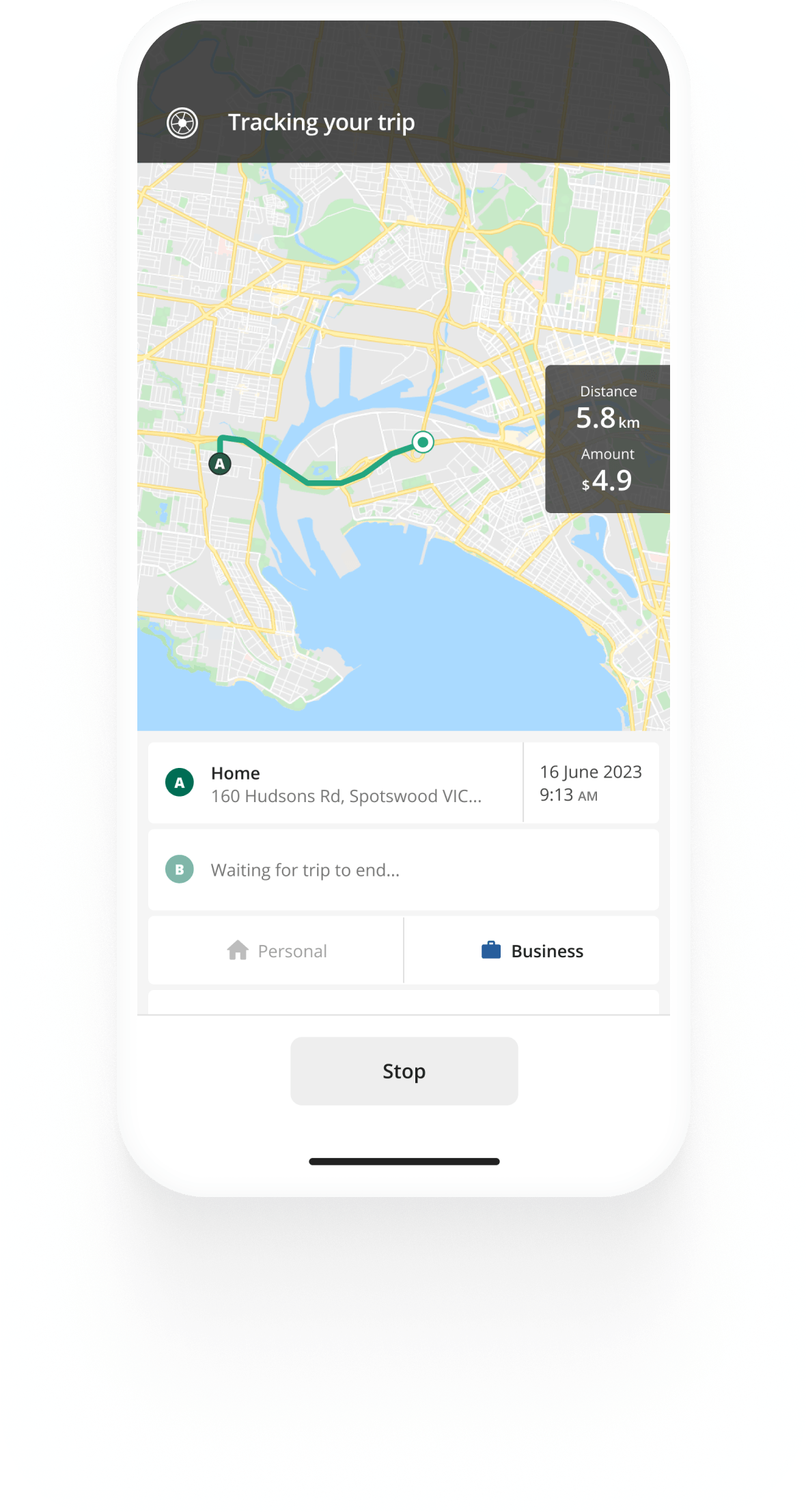Track mileage automatically
Get started
Electric Car FBT Exemption
The purchase and running costs of zero or low emissions vehicles first held and used on or after 1 July 2022 are currently exempt from fringe benefits tax (FBT). That means if your electric car is eligible, you do not need to pay FBT on it, or additional expenses associated with operating the car.
In this article, we specify what requirements must be met to qualify for the EV FBT exemption, and the rules and implications surrounding the topic.
EV FBT exemption eligibility requirements
To encourage businesses to switch to electric vehicles for their company cars, the federal government introduced an EV FBT exemption for electric vehicles that were first held and used on or after 1 July 2022. There are, however, eligibility requirements to be aware of:
- The car must be a zero or low emissions vehicle
- The car must be used by a current employee or their associates (such as family members)
- Luxury car tax (LCT) must have never been payable on the importation or sale of the car
Vehicles charged solely by an internal combustion engine (such as the early Toyota Prius) are NOT eligible for the EV FBT exemption.
What’s considered a zero or low emissions vehicle?
The ATO defines a zero or low emissions vehicle as a battery electric or hydrogen fuel cell electric. The vehicle must be designed to carry a load of less than 1 tonne and a maximum of 8 passengers.
Note that using a company vehicle for travelling to and from work and for work-related activities, such as visiting client sites, is exempt from FBT, irrespective of whether the vehicle is itself exempt.


Kilometre tracking made easy
Trusted by millions of drivers
Automate your logbook Automate your logbook

Automatic mileage tracking and ATO-compliant reporting.
Get started for free Get started for freeAdditional car expenses exempt from FBT
If the car itself is eligible for an FBT exemption, some additional vehicle expenses you’ve incurred are also exempt. Those include:
- Registration costs
- Insurance
- Maintenance and repairs
- Fuel costs (in this case, electricity used to charge the vehicle)
Luxury car tax threshold
Luxury car tax (LCT) applies to vehicles whose GST (goods and services tax) inclusive values are higher than the LCT threshold.
The threshold for the 2025-26 financial year is $80,567 for vehicles NOT classified as fuel-efficient, and $91,387 for fuel-efficient vehicles (vehicles, where fuel consumption is at 7 litres per 100 kilometres or lower).
Example: If you buy an EV for more than $91,387 including GST and any accessories sold with the vehicle, you are not eligible for an FBT exemption.
FBT law change around plug-in hybrid electric vehicles (1 April 2025)
The federal government has changed the rules around plug-in hybrid electric vehicles (PHEV), which are no longer exempt from FBT from 1 April 2025.
This means only fully electric vehicles are eligible for an FBT exemption from this date.
There is an exception for PHEVs that were purchased before 1 April 2025 and are under a financially binding agreement, such as a lease that ends after the rule change. However, any extension of the agreement (for example, if the lease was extended for another two years) is not eligible for the EV FBT exemption and it would be subject to FBT once the original lease expires.
EVs eligible for an FBT exemption
There’s an extensive list of vehicle brands and models eligible for the electric vehicle exemption, but some of the common manufacturers are:
- Tesla
- BYD
- Kia
- Hyundai
- MG
- Polestar
Individual models may be subject to the luxury car tax, so you will need to confirm at the time of purchase that the price is below the LCT threshold of $91,387.
For more information regarding electric car exemption from FBT, head to the official ATO guide on the topic.
FAQ

Tired of logging mileage by hand?
Effortless. ATO-compliant. Liberating.
Top posts
- GOFAR vs Driversnote
- Work-Related Travel Expenses for Employees
- Sole Trader Tax Deductions: An Essential Guide
Related posts
ATO Mileage Guide
Latest update: 23 June 2025 - 5 min read
Learn about the rules of reimbursing employees for their car expenses or deducting expenses as an employee or self-employed individual.
GOFAR vs Driversnote
Latest update: 23 February 2026 - 10 min read
Compare GOFAR and Driversnote in 2026. See which logbook app is best for ATO compliance, ease of use, privacy, and everyday driving needs.
Work-Related Travel Expenses for Employees
Latest update: 16 January 2026 - 2 min read
Learn about the ATO rules on work-related travel expenses and see if they are reimbursable or deductible at tax time in Australia.


